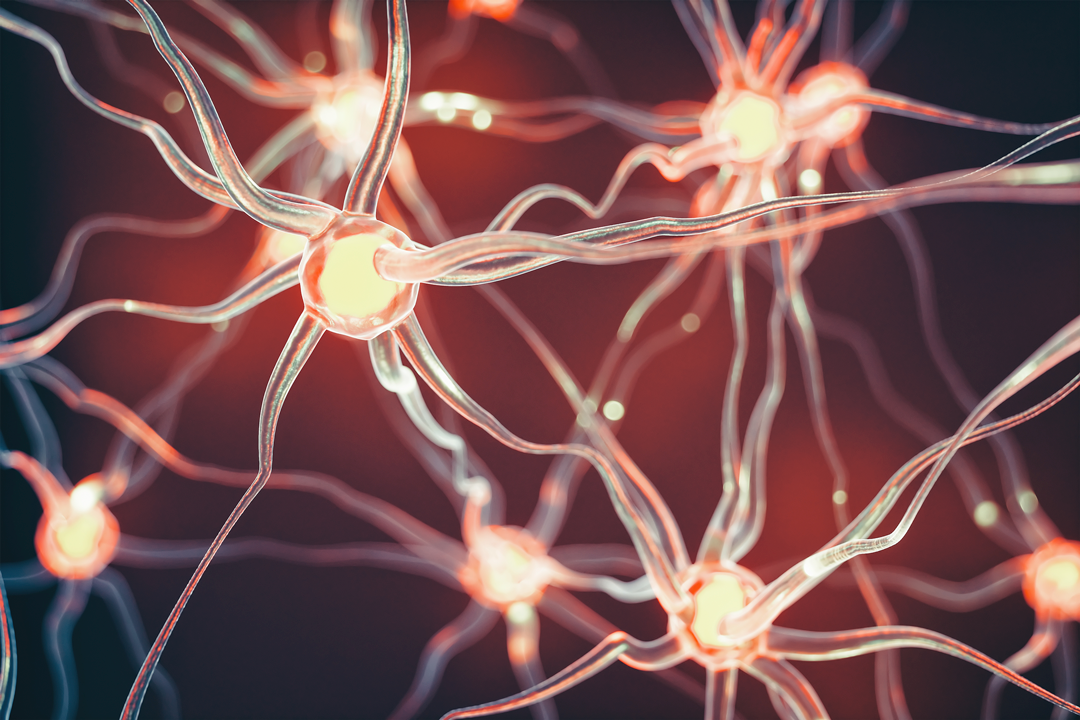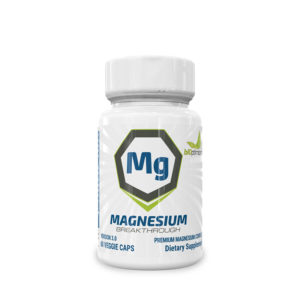ARTICLE
Optimize Your Nervous System to Improve Quality of Life

Written by: Bioptimizers
Perhaps the most visceral system that directly affects us on a daily basis is the nervous system. Yet it is one of the most ignored systems in the body. The good news is, it’s one of the systems you have the most influence and control over. For an improved quality of your life, understanding how to optimize your nervous system is one of the most important factors.
A 2 Gear System: Fight-Flight-Freeze or Heal
The nervous system is made of two systems:
Sympathetic: also known as “fight, flight or freeze”, “The survival system”
Parasympathetic: also known as the “healing system”
The Survival System
The sympathetic nervous system evolved to save us from dangerous or stressful situations. A flood of survival hormones cranks the body’s alertness and heart rate, sending extra blood to the muscles. Breathing speeds up to deliver more oxygen to the brain, and an infusion of glucose is shot into the bloodstream for a quick energy boost. This system is designed to mobilize us or help us defend ourselves against threats: deadly animals, other humans, etc.
One important factor to understand is that anything believed or felt to be a threat will activate this system. Anything from losing a job/economic insecurity, to concerns over a failed project, even relationship issues/the fear of being alone – ANY FEAR activates the survival system.
The average person is caught in a sympathetic loop. When they wake up, they activate their beta brain waves. They check their phones, have a cup of coffee, and have food on the run. Then, a stressful commute to work. After a long hard day’s work, another stressful commute. When they get home they spend more time hijacked on their phones and then fall asleep.
The only time they’re parasympathetic, is when they fall asleep. However, for most of them it’s low quality sleep. They’re stuck repeating this vicious cycle – essentially stuck in fight, flight or freeze.
The Healing System
This is what puts the body in a healing state for it to recover, rest and rejuvenate. Before the advance in the industrial ages and technologies, we spent far more time in parasympathetic mode. When the sun went down, we went to bed. Our brain’s dopamine system wasn’t hijacked by apps, games, movies and shows. There was less stimulation than there is today. Our brains weren’t being fooled by blue light coming from all of these devices.
The most common problem is people become trapped in a fight-flight-or-freeze lifestyle. Entrepreneurs and motivated career-driven people easily fall into this trap. They travel the world, manage multiple products, start new businesses, lead dozens, hundreds of thousands of people. They constantly learn new skills and systems. Sleep is cut to make more time for work. Diet is compromised by restaurant meals and other low quality food options. Complex problems arise constantly. High-stress situations and problems come daily. The solution: manage the nervous system for maximum success, health and happiness.

The #1 Mineral to Optimize Your Nervous System
FACT: Over 80% of Americans are deficient in magnesium (most of the soil in the United States is lacking it). And over 99% are lacking the optimal dose
Magnesium is responsible for 300-600 different biochemical reactions in the body (including metabolism). When levels are low, you struggle with sleep, energy, metabolism, pain and more. It’s worth noting that studies show a direct correlation between chronic magnesium deficiency and levels of anxiety and stress. High stress, in turn, can cause us to lose a higher amount of this nutrient in urine, leading to an even more dangerous deficiency, which then WORSENS our response to stress. We get stuck in a cycle of feeling stressed, losing more magnesium, reacting even more to stress, losing more again, and so on. It’s a vicious cycle.
The Problem Is Two-Fold
First, almost everyone is SEVERELY deficient in magnesium — even those who get the “recommended daily dose”, because higher stress levels (common for ambitious folks) require much higher than RDA doses.
And SECOND, if you’re ONLY taking ONE form of magnesium — YOU ARE STILL DEFICIENT.
Why This Is the ONLY NUTRIENT That Defeats Stress at a Cellular Level
A 2010 review of natural treatments for anxiety found that magnesium could be a treatment for anxiety. [1] More recently, a 2017 review that looked at 18 different studies found that magnesium did reduce anxiety. [2] These studies looked at mild anxiety, anxiety during premenstrual syndrome, postpartum anxiety, and generalized anxiety. According to this review, one of the reasons why magnesium might help reduce anxiety is that it may improve brain function.
Magnesium is the fourth most abundant mineral in the body and is needed for everything, including:
Maintaining normal muscle and nerve function[3]
Keeping a healthy immune system[4]
Maintaining normal heart rhythm[5]
Building strong bones[6]
And lowering cortisol levels[7]
Magnesium has been proven to help mitochondria generate and use ATP, the main unit of energy in the body’s cells. For that reason, another study says, “mitochondria are intracellular magnesium stores.” It’s easy to see why trying to reduce stress levels without adequate magnesium and the full spectrum of magnesium types is a sure fail.
Why Getting All 7 Forms of Magnesium Transforms Stress and Performance
One of the biggest misconceptions about magnesium is that you just “need more” of the mineral to be healthy and optimized. The TRUTH is, there are many different types of magnesium and each play a critical role in different functions in the body.
Most “healthy” people only get 1-2 forms at best (much of the population is deficient in ALL forms), but with all 7 major forms of magnesium, magic happens. These forms are:
Magnesium Chelate — which is especially important for muscle building, recovery, and health
Magnesium Citrate — which helps with the effects of obesity. In fact, one study found this form was one that helped arterial stiffness in healthy overweight individuals
Magnesium Bisglycinate — this form is most often used to treat symptoms of too much stomach acid such as stomach upset, heartburn, and acid indigestion.
Magnesium Malate — some believe this to be the most bioavailable form (found naturally in fruits, giving them “tart taste”). It can help with migraines, chronic pain, and depression.
Magnesium L-Threonate — this most important form of magnesium for the brain, research has found magnesium-L-threonate (MgT), improves learning abilities, working memory, and short- and-long-term memory.
Magnesium Taurate — this is the form of magnesium best for your heart. One study noted: “The complex magnesium taurate may thus have considerable potential as a vascular-protective nutritional supplement.”[1]
Magnesium Orotate — While also helpful for the heart, magnesium orotate is believed to be the best form for metabolic improvements, making it a favorite for athletes wanting enhanced recovery, energy and performance.[2]
Getting all of these forms of magnesium, in the optimum dose, upgrades virtually every function in the body. Most magnesium supplements fail to help beat stress because they are synthetic, unnatural, not recognized by the body, and aren’t full spectrum. Which means, they are missing the various forms of magnesium needed to target various organs in the body and to handle all sources of stress — and boost performance in every key area.
There’s a miracle that occurs when the body gets ALL the magnesium that it needs, in all the forms that it needs at the optimal dosage. The 7 different forms of magnesium connect to a variety of biological systems. At the right dose, everything works better. Without them, EVERY biological system is compromised.
The solution? A 90-Day Nervous System Rebuilding Process:
Week 1: Start with 500 mg of Magnesium Breakthrough 3X a day.
Week 2-6: Increase to 1,000 mg of Magnesium Breakthrough 3X a day.
Week 7-12: Increase to 1,500 mg of Magnesium Breakthrough 3X a day.
This formula is a game changer for almost everyone who tries it.
Get 10% off at bioptimizers.com/biohacking2020 with code biohacked2020

References
Frank R. Noyes, Sue D. Barber-Westin, in Noyes’ ”Knee Disorders: Surgery, Rehabilitation, Clinical Outcomes” (Second Edition), 2017
Holland Barret, “How stress snatches magnesium.”
Cuciureanu, Magdalena D., and Robert Vink. “Magnesium and Stress.” In Magnesium in the Central Nervous System, edited by VINK ROBERT and NECHIFOR MIHAI, 251-68. South Australia: University of Adelaide Press, 2011.
Epel ES, McEwen B, Seeman T, et al. “Stress and body shape: stress-induced cortisol secretion is consistently greater among women with central fat.” Psychosom Med. 2000;62(5):623-632.
Lakhan SE, et al. (2010). “Nutritional and herbal supplements for anxiety and anxiety-related disorders: systematic review.”
Boyle NB, et. al. (2017). “The effects of magnesium supplementation on subjective anxiety and stress – A systematic review.”
Jahnen-Dechent W, Ketteler M. “Magnesium basics.” Clin Kidney J. 2012;5(Suppl 1):i3-i14.
Tam M, Gómez S, González-Gross M, Marcos A. “Possible roles of magnesium on the immune system.” Eur J Clin Nutr. 2003;57(10):1193-1197.
“Magnesium helps the heart keep its mettle. Food, and maybe a multivitamin, should provide all the Mg you need.” Harv Heart Lett. 2011;21(6):2.
Castiglioni S, Cazzaniga A, Albisetti W, Maier JA. “Magnesium and osteoporosis: current state of knowledge and future research directions.” Nutrients. 2013;5(8):3022-3033. Published 2013 Jul 31
Cuciureanu MD, Vink R. “Magnesium and stress.” In: Vink R, Nechifor M, eds. Magnesium in the Central Nervous System. Adelaide (AU): University of Adelaide Press; 2011.
[Kubota T, Shindo Y, Tokuno K, et al. “Mitochondria are intracellular magnesium stores: investigation by simultaneous fluorescent imagings in PC12 cells.” Biochim Biophys Acta. 2005;1744(1):19-28.
Drugs.com, “Chelated Magnesium.” Sep 5, 2019.
Schutten JC, Joris PJ, Mensink RP, et al. “Effects of magnesium citrate, magnesium oxide and magnesium sulfate supplementation on arterial stiffness in healthy overweight individuals: a study protocol for a randomized controlled trial.” Trials. 2019;20(1):295. Published 2019 May 28.
WebMD, “Magnesium Glycinate Tablet.”
Uysal N, Kizildag S, Yuce Z, et al. “Timeline (Bioavailability) of Magnesium Compounds in Hours: Which Magnesium Compound Works Best?” Biol Trace Elem Res. 2019;187(1):128-136
Slutsky I, Abumaria N, Wu LJ, et al. “Enhancement of learning and memory by elevating brain magnesium.” Neuron. 2010;65(2):165-177.
McCarty MF. “Complementary vascular-protective actions of magnesium and taurine: a rationale for magnesium taurate.” Med Hypotheses. 1996;46(2):89-100
Rosenfeldt FL. “Metabolic supplementation with orotic acid and magnesium orotate.” Cardiovasc Drugs Ther. 1998;12 Suppl 2:147-152.
